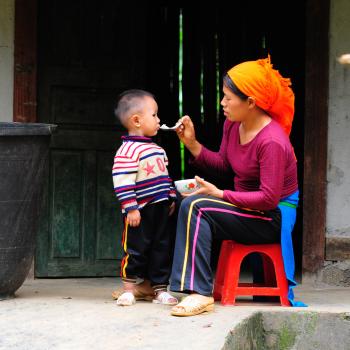
We are delighted to announce a grant of US$1 million from the Bill & Melinda Gates Foundation to a consortium of US-based researchers to investigate whether children are able to recover from the effects of malnutrition early in childhood.
The research will build on early evidence from Young Lives in Peru that some children are able to recover from early stunting, and that they demonstrate similar levels of cognitive development to children who have not suffered long-term malnutrition (Crookston et al. 2010).
The team, led by Professor Jere Behrman from the University of Pennsylvania, will use the Young Lives data to generate high-quality evidence to better understand: (1) the longer-term consequences of early childhood growth patterns, specifically the prevalence, timing and cognitive benefits of recovery from early childhood growth failure, and (2) the relationships between household resources such as income and agricultural production and children’s nutritional status.
Researchers from Pennsylvania, Boston, California Polytechnic State and Emory universities will work alongside members of the Young Lives team, led by Andreas Georgiadis (Young Lives Research Officer, University of Oxford) to review the evidence across the 4 Young Lives study countries, Ethiopia, Andhra Pradesh in India, Peru and Vietnam.
Reference
Benjamin T. Crookston, Mary E. Penny, Stephen C. Alder, Ty T. Dickerson, Ray M. Merrill, Joseph B. Stanford, Christina A. Porucznik and Kirk A. Dearden (2010) 'Children Who Recover from Early Stunting and Children Who Are Not Stunted Demonstrate Similar Levels of Cognition', Journal of Nutrition 140.11: 1996-2001

We are delighted to announce a grant of US$1 million from the Bill & Melinda Gates Foundation to a consortium of US-based researchers to investigate whether children are able to recover from the effects of malnutrition early in childhood.
The research will build on early evidence from Young Lives in Peru that some children are able to recover from early stunting, and that they demonstrate similar levels of cognitive development to children who have not suffered long-term malnutrition (Crookston et al. 2010).
The team, led by Professor Jere Behrman from the University of Pennsylvania, will use the Young Lives data to generate high-quality evidence to better understand: (1) the longer-term consequences of early childhood growth patterns, specifically the prevalence, timing and cognitive benefits of recovery from early childhood growth failure, and (2) the relationships between household resources such as income and agricultural production and children’s nutritional status.
Researchers from Pennsylvania, Boston, California Polytechnic State and Emory universities will work alongside members of the Young Lives team, led by Andreas Georgiadis (Young Lives Research Officer, University of Oxford) to review the evidence across the 4 Young Lives study countries, Ethiopia, Andhra Pradesh in India, Peru and Vietnam.
Reference
Benjamin T. Crookston, Mary E. Penny, Stephen C. Alder, Ty T. Dickerson, Ray M. Merrill, Joseph B. Stanford, Christina A. Porucznik and Kirk A. Dearden (2010) 'Children Who Recover from Early Stunting and Children Who Are Not Stunted Demonstrate Similar Levels of Cognition', Journal of Nutrition 140.11: 1996-2001

